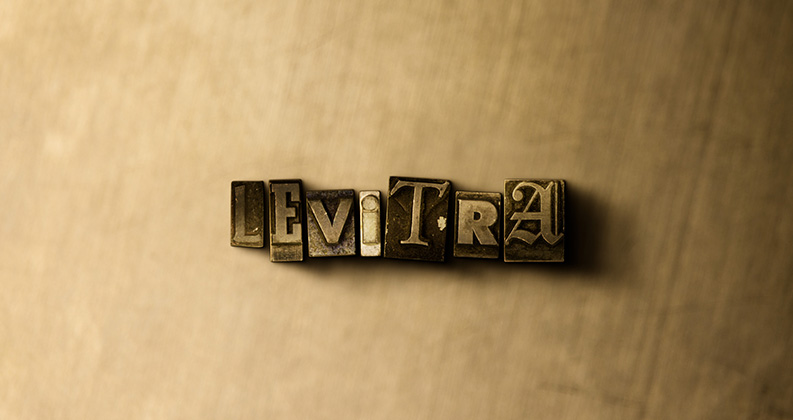
Levitra, which is a drug made with Vardenafil HCL, is an erectile dysfunction (ED) medication much like Cialis, Viagra, and Stendra. Another ED drug, Staxyn, also consists of Vardenafil. All of these medications are effective at helping men with ED, but each one works differently, and therefore, if you’re not happy with the results of one of them, you can always try another one. And if you’re now wondering how long Vardenafil takes to work, just know that it normally takes 30-60 minutes for the drug to take effect.
What Is Vardenafil HCL?
Vardenafil is a PDE5 inhibitor used mostly in ED drugs. It is very close in function to other drugs, including sildenafil citrate (Viagra) and tadalafil (Cialis). In addition to helping with ED, Vardenafil also helps with premature ejaculation because it increases the amount of time between penetration to ejaculation. Like other drugs on the market for other medical conditions, Vardenafil has some contraindications and some side effects.
Vardenafil HCL is a small round orange pill that comes in doses of 2.5 mg, 5 mg, 10 mg, and 20 mg. The average dosage is 10 mg, and in certain countries – including the UK – only certain doses are available. Men take the pill roughly one hour before engaging in sexual activity, and the medication can only be used once a day. There is currently a version gaining approval in both the US and Canada that dissolves as soon as you place it on your tongue.
How Does Levitra Work?
Levitra is a PDE5 inhibitor and works by allowing more blood flow to the penis. One thing you have to remember is that you must still be sexually aroused in order for the medication to work. The medicine alone is not enough to cause an erection. Nevertheless, the way Levitra works is simple and is effective in most cases. That being said, your doctor still has to know your complete medical history, which includes your allergies and any medications you’re taking, for Levitra to have the best results.
As with other medications, there are certain men that should not take Levitra. This includes men who are allergic to Vardenafil or men who are using drugs for pulmonary arterial hypertension, including riociguat (Adempas). In addition, if you are currently taking any type of nitrate drug for heart problems or chest pain, you should avoid taking Levitra. Nitrate drugs include isosorbide mononitrate, nitroglycerin, and isosorbide dinitrate. Also, if you’re taking any recreational drugs with nitrite or nitrate in them, you should not take Levitra. If you do, it causes a sudden and serious drop in your blood pressure.
Levitra is also not approved for anyone under the age of 18, and you should always take the medication as directed. In addition, always let your doctor know if you’ve ever experienced or you’ve ever been treated for the following:
● Any heart problems (heart attack, palpitations, stroke, heart disease, etc.)
● Any blood cell disorders, such as leukemia or sickle cell anemia
● Seizures
● Low or high blood pressure
● Liver or kidney disease
● Stomach ulcers
● Bleeding disorders such as hemophilia
● Long QT syndrome
● Hearing or vision problems, including loss of hearing or vision
● Any eye disorders, such as retinitis pigmentosa
● Any physical deformity of the penis, including Peyronie’s Disease
Levitra has also been known to decrease blood flow to the optic nerve and therefore cause sudden vision loss. This occurs only in a small number of individuals, but it’s one of the reasons you should go over every detail of your medical history with your doctor before deciding to get on this medication. Indeed, if there is any other condition not listed above that you deal with on a regular basis or have dealt with in the past, you need to let your doctor know about it as soon as possible. Disclose everything to your doctor whether you think it’s important or not.
What Are the Side Effects of Levitra?
Roughly 40% of the men who take Levitra have some side effects, although for the most part, they are very mild. These include the following:
● Headache
● Dizziness
● Indigestion
● Mild low blood pressure
● Stuffy or runny nose
● Flushing
Naturally, you should discuss all side effects with your doctor because your overall health and the other medications you’re taking can affect how you react to Levitra. For instance, if you have an erection that lasts more than 4 hours, you should seek medical attention immediately. Otherwise, permanent damage to your penis could occur. An erection lasting more than 6 hours definitely needs immediate medical attention. But don’t spend too much time worrying about this because most men experience neither of these things.
Other side effects that are a little more serious and should be reported to your doctor immediately include:
● Chest pain
● Allergic reaction (e.g., rash)
● Severe low blood pressure
● Heart palpitation
● Muscle pain
● Amnesia
● Irregular heartbeat
● Vision loss
● QT prolongation
● Bone pain
● Tinnitus
● Chest pain
● Hearing loss
● Increased creatinine kinase levels
Again, do not panic if you suffer from any of these or any other side effects when taking Levitra, but let your doctor know about the symptoms, even if they’re mild. In most cases, the doctor will tell you it’s nothing to worry about or may even change your dosage. Still, your doctor needs to know about them in order to determine how serious they are and what to do about them.
What Are the Contraindications with Levitra?
The first thing you need to know about contraindications is that your doctor needs to know about everything you’re taking, which includes vitamins and supplements, including herbal supplements. You should also disclose whether or not you drink alcohol and how often you drink. In addition to this, always let your doctor know if you’ve ever taken or you are currently taking any of the following medications:
● HIV protease inhibitors
● Any other PDE5 inhibitors, including Cialis and Viagra
● Any medications that regulate your heart rate
● Guanylate cyclase stimulators (riociguat)
● Nitrates and nitric oxide donors
● Any medications used to control your blood pressure, including alpha blockers
● Any antibiotics
● Antifungal medications
● Medications for prostate help
Sometimes, Levitra can interact with anything that contains grapefruit, or even the fruit itself. Some of this may sound a little picky, but the truth is, your doctor needs to know everything about your health in order to determine if Levitra is right for you. Many of the things you eat, drink, or are prescribed can interfere with Levitra and therefore increase the potential for suffering with side effects. When it comes to your health, there is no such thing as giving your doctor too much information. This is because some of the many contraindications are not included on this list because the list is very long.
How to Take Levitra
As mentioned earlier, Levitra comes in various doses, and your doctor can decide which one is best for you. The good news is that you can take Levitra with or without food. The only “rule” is not to take the medication after a very heavy meal or a meal that is very fatty. Why? Because it may take the medication a little longer to take effect. So, no thick steak or double cheeseburger right before you take Levitra, especially if you’re anxious to get started!
In addition, while you should take Levitra 30-60 minutes before your sexual activity, just know that it can last for several hours, so you don’t have to worry about not lasting very long once you swallow your pill. If you are taking a pill that dissolves on your tongue, don’t drink anything when taking it. Simply place it on your tongue and use your saliva to get it to dissolve. Don’t chew it or break it. Then, wait at least 15 minutes before you drink any liquids.
In most cases, your doctor will tell you to wait a full 24 hours before you take Levitra again, so it is definitely a once-a-day pill. Indeed, whatever your doctor tells you, you’d be smart to listen to it. Each patient is different, so the rules of taking Levitra and the dose that is recommended for your use have to be followed to the letter. And naturally, you should let your doctor know immediately if you have any questions or concerns about the medication.
Conclusion
Levitra, or more specifically, Vardenafil HCL, is an effective drug to treat erectile dysfunction and occasionally some forms of pulmonary hypertension. It takes around an hour for it to start to work and will last for several hours. While side effects are generally mild, they should still be reported to your doctor immediately, just as your medical conditions and other prescriptions should. As of this writing, the 2.5 mg dosage of Levitra is no longer available in the US, but the other doses are still available.
Levitra is safe as long as it is taken under a doctor’s care, so as long as you’ve had an examination by a doctor and been approved to take the medication, you shouldn’t have any problems with it.







